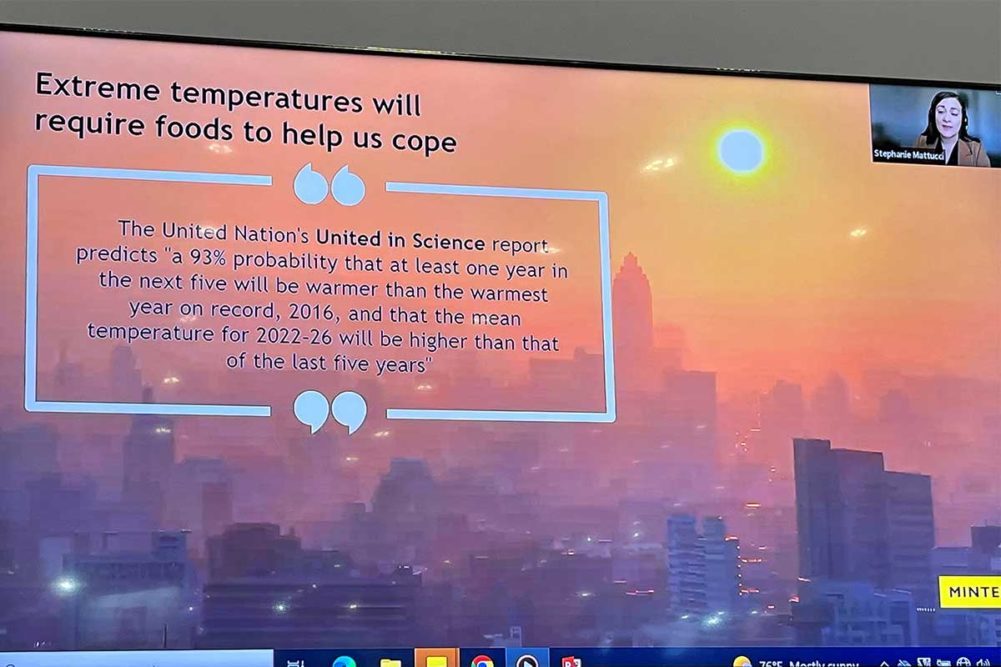CHICAGO — As much of the world suffers under record-breaking temperatures, unhealthy air created by wildfires and smog, and a host of other weather disasters, people must prepare for these emergencies in the future, and brands have a number of ways to help.
That was the message from Stephanie Mattucci, director, food science for Mintel, speaking virtually at IFT FIRST, held July 16-19, on a talk “Weatherproofed Provisions: Preparing Formulations for an Uncertain Future.”
“There are a lot of ways brands can help consumers prepare for the future,” she said. “From record-breaking temperatures to weather emergencies to protecting yourself from poor air quality or harmful UV rays, there are a lot of areas that consumers are worried about and will continue to worry about.”
Ms. Mattucci suggested that brands innovate with ingredients consumers will be interested in, such as antioxidants, which can help the body fight free radical damage from pollution or harmful UV rays, vitamin D for those forced to spend more time out of the sun to avoid blistering heat and pollution, and electrolytes to replenish essential nutrients.
In the United States, two-thirds of consumers are interested in products that strengthen skin to fight against urban pollution, which provides an opportunity for brands creating products with skin health benefits.
“When we think about skin health, we typically think about beauty and personal care space,” Ms. Mattucci said. “We don’t really think of nutrition, but there is a lot we can talk about and explore, nutritionally speaking, when it comes to supporting healthy skin.”
Hydration is an important part of keeping the entire body healthy. Brands are already helping with these causes, including Gatorlyte, which provides hydration with less sugar. For extreme cold, brands could embrace shelf-stable foods that are hearty and warming.
Air pollution is another concern, with a quarter of US adults saying that poor air quality causes them health problems and three-quarters of adults in India saying they are concerned about pollution, Ms. Mattucci said.
To address these concerns, brands can offer cellular protection against air pollution through products with antioxidants such as vitamin C, zinc and selenium. And the Mediterranean diet can help with adverse cardiovascular effects caused by long-term pollution exposure, according to a study published in Circulation.
And to help consumers during weather emergencies, Ms. Mattucci suggested that brands offer foods with functional health benefits needed, including nutritious products that don’t require additional energy or excessive water to prepare when electricity or refrigeration may be cut off.

